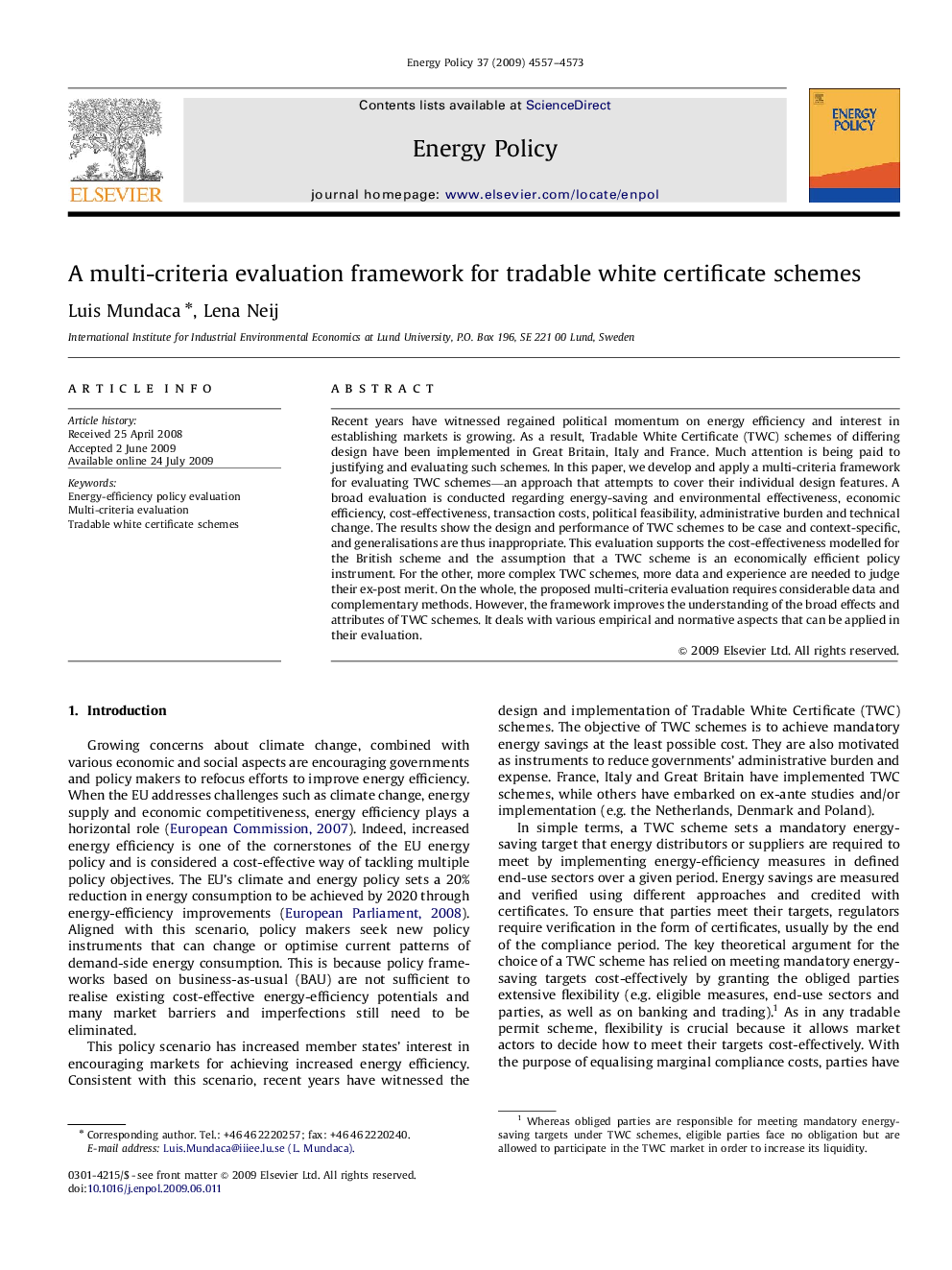| Article ID | Journal | Published Year | Pages | File Type |
|---|---|---|---|---|
| 996614 | Energy Policy | 2009 | 17 Pages |
Recent years have witnessed regained political momentum on energy efficiency and interest in establishing markets is growing. As a result, Tradable White Certificate (TWC) schemes of differing design have been implemented in Great Britain, Italy and France. Much attention is being paid to justifying and evaluating such schemes. In this paper, we develop and apply a multi-criteria framework for evaluating TWC schemes—an approach that attempts to cover their individual design features. A broad evaluation is conducted regarding energy-saving and environmental effectiveness, economic efficiency, cost-effectiveness, transaction costs, political feasibility, administrative burden and technical change. The results show the design and performance of TWC schemes to be case and context-specific, and generalisations are thus inappropriate. This evaluation supports the cost-effectiveness modelled for the British scheme and the assumption that a TWC scheme is an economically efficient policy instrument. For the other, more complex TWC schemes, more data and experience are needed to judge their ex-post merit. On the whole, the proposed multi-criteria evaluation requires considerable data and complementary methods. However, the framework improves the understanding of the broad effects and attributes of TWC schemes. It deals with various empirical and normative aspects that can be applied in their evaluation.
